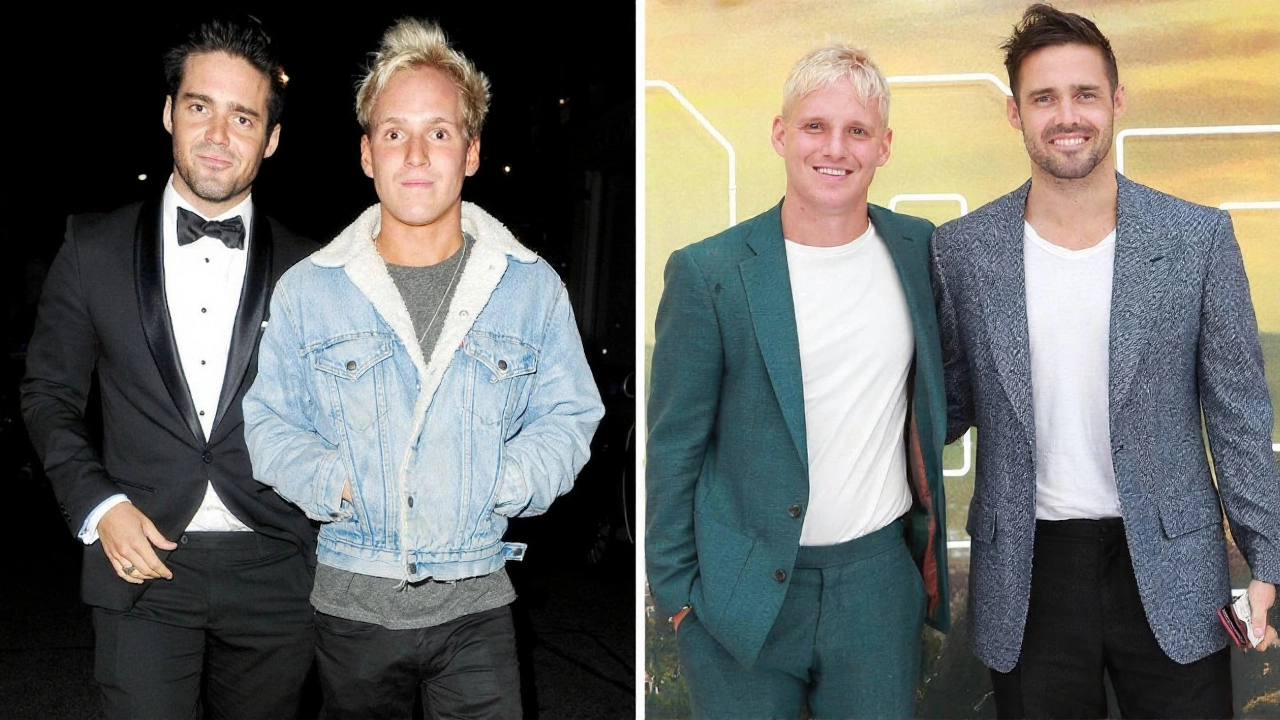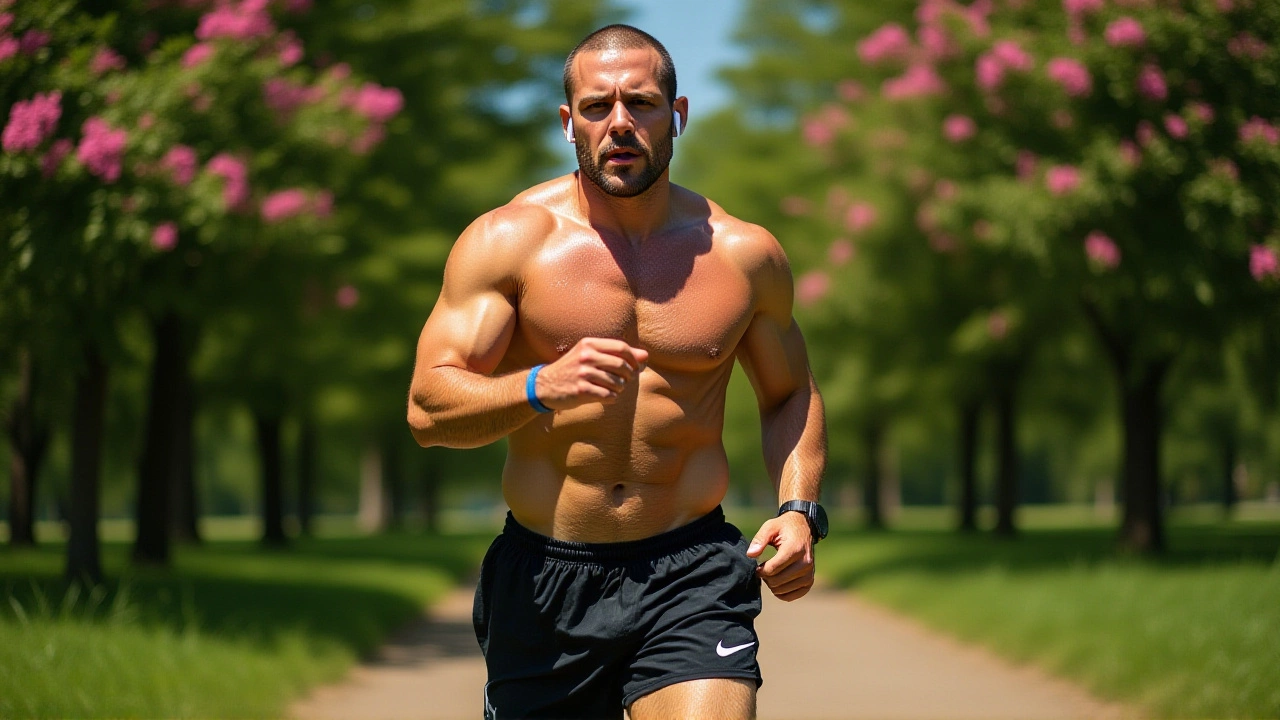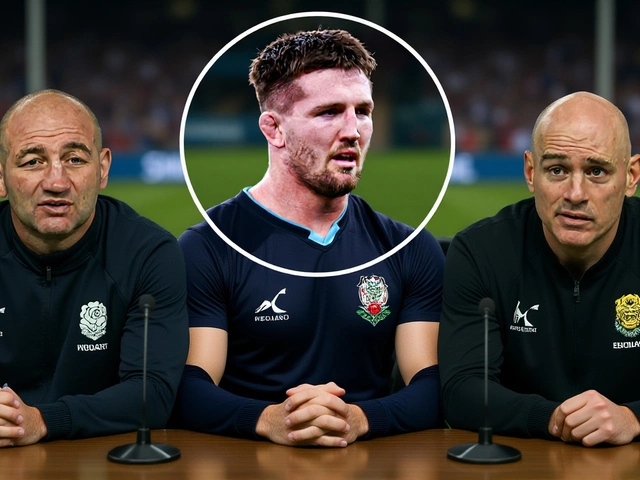On November 13, 2025, at 12:17 PM UTC, Spencer Matthews, the 37-year-old British TV personality and ultrarunner best known for Made in Chelsea, plunged into the dark, choppy waters of London’s River Thames to begin PROJECT SE7EN — an unprecedented endurance feat that could rewrite the record books. Seven full-distance Ironman triathlons. Seven continents. Just 21 days. The current world record? Nearly four years. Matthews isn’t just pushing his body — he’s rewriting what’s possible.
From Desert Marathons to Icy Triathlons
Matthews didn’t wake up one day and decide to do this. Last year, he completed The Great Desert Challenge, running 30 marathons in 30 days across the Sahara and Australian outback. He called it exhausting. Liberating. But when he finished, he didn’t rest. He wanted more. "I knew as soon as I was finding my stride out there in the desert that I wanted this to be a regular feeling for me," he told TRI247. "But I wanted to change it up and make it different. I wanted to complicate it for myself." This time, instead of sand and sun, he’s facing freezing Antarctic waters, 30-hour flights between continents, and zero recovery time. Each triathlon is 140.6 miles: 2.4 miles of swimming, 112 miles of cycling, and a full 26.2-mile marathon. And he’s doing them back-to-back, with no rest days. He hadn’t even completed a full Ironman until just before this challenge began.The Route: A Global Grind
The schedule is brutal — and precise. Here’s the timeline:- November 13, 2025: London, England (Europe) — started at Canary Wharf, swimming in the Thames under gray November skies.
- November 16, 2025: Arizona, USA (North America) — completed the Arizona Ironman just three days later.
- November 19, 2025: Cape Town, South Africa (Africa) — after a 30+ hour journey from Phoenix, arriving at 10 p.m. local time.
- November 22, 2025: Perth, Australia (Oceania)
- November 25, 2025: Dubai, United Arab Emirates (Asia)
- November 28, 2025: Rio de Janeiro, Brazil (South America)
- December 4, 2025: Antarctica — the final, most dangerous leg, where temperatures hover near freezing and leopard seals patrol the waters.
The Hidden Toll: Sleep, Stress, and Survival
The physical demands are staggering. But the mental strain? That’s where the real battle lies. Matthews revealed to Runner’s World he got just two hours of sleep before his first triathlon in London. His team — a small crew based in London — tracks his vitals in real time. He’s got a "spiritual guide" on call, someone trained in trauma-informed coaching, to help him navigate the psychological fog that comes with sleep deprivation and constant travel. "It’s not about pain," he said in a raw YouTube episode of his Untapped series, released November 17. "It’s about staying present. One stroke. One pedal. One step. If you think about the whole thing, you break."
Why This Matters: A Cry for Men’s Mental Health
This isn’t just a stunt. It’s a lifeline. Every mile, every drop of sweat, every sleepless night is raising money for James' Place National Charity, a UK-based organization offering free, immediate cognitive behavioral therapy to men in suicidal crisis. "A person takes their life roughly every single hour," Matthews told TRI247. "The most likely thing to kill a 35-year-old man is themselves. It shouldn’t be that way. It’s not weak to express how you’re feeling — it always feels good to talk about your problems." Donations are processed through givestar.io under campaign ID spencer-matthews-project-7. As of November 17, the campaign had already raised over $2.3 million — more than double its initial goal.What’s at Stake: A New Benchmark for Human Endurance
The current record for completing seven Ironman triathlons across seven continents? 1,460 days — just under four years. Matthews is aiming to do it in 21. That’s a 98.5% reduction in time. No one has come close. Even elite triathletes who’ve done multiple Ironmans back-to-back take weeks between events. Matthews is doing it in hours. Experts are stunned. Dr. Elena Ruiz, a sports physiologist at King’s College London, told The Guardian: "This isn’t just extreme. It’s borderline medically reckless. The body needs 72 hours to recover from a single Ironman. He’s getting 12. We’re talking about muscle degradation, immune collapse, cardiac stress. If he finishes, it’ll be a miracle of discipline — not biology." But Matthews isn’t listening to the skeptics. "I’m not trying to be the strongest," he said. "I’m trying to be the most stubborn."
What’s Next?
The final leg in Antarctica is scheduled for December 4. Weather delays could push it back — and with temperatures below freezing and unpredictable sea ice, even getting to the swim start is a gamble. If he completes it, he’ll become the first person to ever finish seven Ironman triathlons across seven continents in under three weeks. His team plans to release a documentary titled Untapped: Project SE7EN in early 2026, with all proceeds going to James’ Place. Meanwhile, the campaign continues to grow. Thousands are following his live GPS tracker. Strangers are leaving messages on his social media: "You’re giving us hope," one wrote. "My brother didn’t make it. I’m doing this for him."Frequently Asked Questions
How is Spencer Matthews managing recovery between such intense events?
Matthews gets an average of two to three hours of sleep per night between events, relying on ice baths, compression gear, and IV hydration packs. His team uses wearable tech to monitor his heart rate variability and cortisol levels in real time, adjusting his nutrition and rest windows. He’s also under 24/7 psychological supervision to prevent burnout or depressive episodes triggered by extreme fatigue.
What makes Antarctica the most dangerous leg of PROJECT SE7EN?
The swim in Antarctica will occur in waters near -1.8°C (28.8°F), where hypothermia can set in within minutes. Leopard seals — known to attack humans — patrol the area, and rescue teams must be stationed on icebreakers due to the lack of nearby infrastructure. Even the bike course is on frozen terrain, with no paved roads. The race organizers have confirmed that only three people have ever completed an Ironman-distance triathlon in Antarctica — all under controlled, multi-day expeditions.
How is this challenge different from other endurance records?
Unlike other multi-event records, PROJECT SE7EN combines extreme physical exertion with extreme logistical complexity. Previous records focused on distance or time — but not global transit. Flying between continents with no recovery, dealing with jet lag, changing climates, and altitude shifts makes this a unique blend of endurance, navigation, and survival. No athlete has attempted this scale of travel alongside performance.
Who is James' Place National Charity, and how does it help men?
James' Place National Charity offers free, immediate, face-to-face cognitive behavioral therapy to men in suicidal crisis, with no waiting lists. Founded in 2016 after the suicide of James Roffey, it operates 12 centers across the UK and has helped over 10,000 men since inception. Their success rate for preventing repeat suicide attempts is 82%, far higher than national averages. Matthews chose them because men are three times more likely to die by suicide than women in the UK — and often won’t seek help.
Has anyone else tried something like this before?
No. The closest precedent is the "Seven Continents Challenge" by triathlete Marko Kivimäki, who completed seven Ironmans across seven continents — but over 42 months. Even the fastest multi-Ironman finisher, Australian athlete Braden Currie, took 11 days for three events. Matthews’ goal is more than double the distance in less than 1/70th the time. His attempt is unprecedented.
What happens if Matthews doesn’t finish?
Even if he doesn’t complete all seven, the campaign will continue. All funds raised so far will still go to James’ Place, and his team has pledged to finish the remaining legs with a relay of elite athletes if needed. But Matthews has made it clear: he’s not quitting. "I didn’t start this to be a statistic," he said. "I started it because someone has to show men it’s okay to keep going."

 Sussex Police seek to revoke Hailsham pub licence after year of violence and attack on landlord
Sussex Police seek to revoke Hailsham pub licence after year of violence and attack on landlord
 Illimité Escort Girl Avignon: What You Need to Know Before You Go
Illimité Escort Girl Avignon: What You Need to Know Before You Go
 Aberdeen Council Approves 200+ E-bikes for Spring 2026 Launch Amid Winter Transport Chaos
Aberdeen Council Approves 200+ E-bikes for Spring 2026 Launch Amid Winter Transport Chaos
 RFU Backs Tom Curry Amid Contepomi 'Bully' Accusation After Twickenham Clash
RFU Backs Tom Curry Amid Contepomi 'Bully' Accusation After Twickenham Clash
 Why is drag racing so popular?
Why is drag racing so popular?